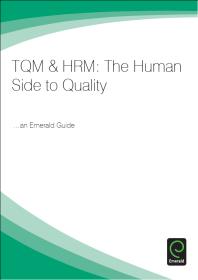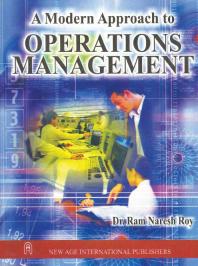By the end of this course, it is expected that the student should be able to
- Implement the principles and concepts inherent in a Total Quality Management (TQM) approach to managing a manufacturing or service organization.
- Understand the philosophies--including similarities and differences--of the gurus of TQM in order to better evaluate TQM implementation proposals offered by quality management organizations and consultants.
- Successfully implement process improvement teams trained to use the various quality tools for identifying appropriate process improvements.
- Assess exactly where an organization stands on quality management with respect to the ISO 9000 quality management standard and the Baldrige Award criteria

 Production and operation management
by
Production and operation management
by

